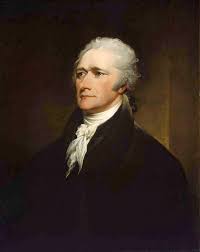The Life and Legacy of Alexander Hamilton

Introduction
Alexander Hamilton, one of the Founding Fathers of the United States, played a crucial role in laying the foundations of the American financial system. His vision of a strong central government and an active economy continue to influence the nation today, making his legacy highly relevant in contemporary discussions about governance and economics.
Early Life and Career
Born on January 11, 1755, in Charlestown, Saint Kitts, Hamilton’s early life was marked by hardship. Orphaned at a young age, he showed exceptional intellect and eagerness to learn. In 1772, he moved to New York City to pursue education and quickly became involved in revolutionary politics as tensions rose between the American colonies and Great Britain.
Key Contributions
Hamilton’s contributions to the American Revolution were significant. He served as an aide-de-camp to General George Washington, showcasing his military and organizational capabilities. After the war, Hamilton authored a series of essays known as the Federalist Papers, advocating for the ratification of the U.S. Constitution. His arguments highlighted the need for a strong federal government to maintain order and foster economic growth.
As the first Secretary of the Treasury, Hamilton established the nation’s financial system. He proposed the creation of a national bank and advocated for the federal assumption of state debts, which laid the groundwork for modern economic policy and the role of the federal government in the economy. His financial policies, though controversial, succeeded in stabilising the nation’s economy and fostering growth.
Legacy and Cultural Impact
Hamilton’s influence extends beyond finance and governance. His life has been re-examined in popular culture, particularly through the Broadway musical ‘Hamilton,’ which highlights his contributions to American history while also addressing themes of diversity and representation. The show has sparked renewed interest in Hamilton’s life and the values he stood for, reinforcing his relevance in today’s discourse on race and identity in America.
Conclusion
The philosophies and systems that Hamilton endorsed continue to resonate. As debates about the size and role of government intensify, Hamilton’s vision for a strong federal authority capable of stimulating economic growth provides essential insights. His life serves as a reminder of the enduring principles that have shaped the United States and the complexities involved in the governance of a diverse nation. As America moves forward, understanding the perspectives of its founding figures like Hamilton remains crucial for informed citizenship.
